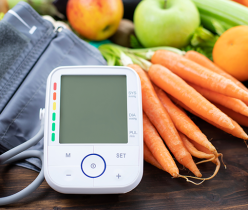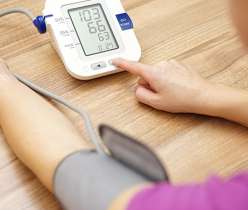Stress is the body’s response to any demand or challenge, whether it’s physical, emotional, or mental. In today’s fast pace, stress is a normal part of life and even helpful in short bursts (like when it motivates you to meet a deadline); chronic or overwhelming stress can negatively affect mental and physical health. High blood pressure or hypertension is one of the common side effects of blood pressure.
Blood pressure is the pressure of the blood on the artery wall when your heart pumps blood around your body. Blood pressure doesn’t always stay the same or equal; it keeps changing to meet your body’s needs. It is normal for your blood pressure to go up and down throughout the day. Patients are advised to take medicines/drugs for high blood pressure to achieve a normal blood pressure range.
This page will discuss the connection between stress and blood pressure and how to manage it. Before we move forward, let’s understand the factors affecting blood pressure or what is the reason for high BP.
-
- Age: Blood pressure tends to rise as people age.
- Weight: Being overweight can increase your risk of developing high blood pressure.
- Physical activity: Regular exercise helps lower blood pressure, while inactivity can contribute to high BP.
- Diet: Diets high in salt, saturated fat, and cholesterol can raise blood pressure. Diets rich in fruits, vegetables, and whole grains can lower BP.
- Stress: Chronic stress may contribute to high blood pressure.
- Alcohol and smoking: Both can increase blood pressure over time.
- Genetics: A family history of hypertension can increase your risk.
High blood pressure symptoms
Most people with hypertension or high blood pressure don’t have any symptoms. If symptoms occur, they usually include headache, nausea and vomiting, dizziness, blurred vision, pain in the chest, difficulty in breathing, fatigue, heart palpitations, nose bleeds, and lightheadedness or fainting.
The connection between stress and blood pressure
Stress and blood pressure are closely connected. When you experience stress, your body releases hormones like adrenaline and cortisol, temporarily increasing your heart rate and causing your blood vessels to constrict. This can raise your blood pressure for a short period. Here is the breakdown of how stress and blood pressure are linked:
- Short-term effects of stress on blood pressure
-
- Fight-or-flight response: In response to stress, your body goes into a “fight or flight” mode, causing a surge of stress hormones. These hormones cause the heart to beat faster, and your blood vessels narrow, increasing blood pressure.
- Temporary spikes: Acute stress can cause short-term blood pressure spikes. While these spikes are temporary, frequent occurrences can contribute to long-term high blood pressure.
- Long-term effects of chronic stress
-
- Chronic hypertension: Prolonged exposure to stress can contribute to consistently elevated blood pressure, particularly if it leads to unhealthy coping mechanisms such as poor diet, lack of exercise, or excessive alcohol consumption.
- Impact on health: Over time, high blood pressure (hypertension) can damage your heart, kidneys, and other organs, increasing the risk of conditions like heart disease and stroke.
- Unhealthy responses to stress
-
- Lifestyle factors: People often cope with stress in ways that negatively impact blood pressure. For example:
- Eating unhealthy, high-sodium foods
- Smoking or consuming alcohol
- Neglecting physical activity These behaviors can worsen blood pressure control.
Ways to manage stress management and blood pressure
Some of the best ways to manage stress and lower blood pressure are:
-
- Practice relaxation techniques
Regular deep breathing, meditation, yoga, and tai chi can help lower blood pressure and slow your heart rate. You can learn these techniques from books, videos, online sources, or just by joining a class organized by a trainer or specialist. - Get enough sleep
Getting sufficient daily sleep is important. Aim for at least 7 to 8 hours of sleep each night to help you think more clearly and have more energy. - Eat healthy
Our eating habits play a key role in health management. Eat a healthy diet with lots of fruits, vegetables, whole grains, low-fat or nonfat dairy, and lean proteins. - Spend time with loved ones
Connecting with friends and family can help you feel better and forget about stress. - Accept what you can’t control
Try to identify what you can control and direct your energies toward those things and not on those that aren’t in your control. If you feel anxious or sad due to stress, seek help from a therapist or healthcare provider.
- Adjust your schedule
Manage your schedule if you have too much to do; look at your calendar and to-do lists. Delete that is not important or choose others to do some things. Learn to say no to things you don’t want to do or don’t belong to your role.
- Practice relaxation techniques
Although stress may not directly cause long-term high blood pressure on its own, its effects on behavior and the body can make it more difficult to manage or lead to persistent hypertension if not addressed. If you feel you are struggling with hypertension, consult a doctor to seek blood pressure medicines. One should always take a BP medication prescribed by a doctor. Some common BP medicines include Telma 80 mg, Cardivas CR 40 mg, Nicardia CD 30mg, Corbis 5mg, and more. Your doctor will decide the dose and treatment duration after examining your health condition and knowing the reasons for your high or low BP symptoms.




